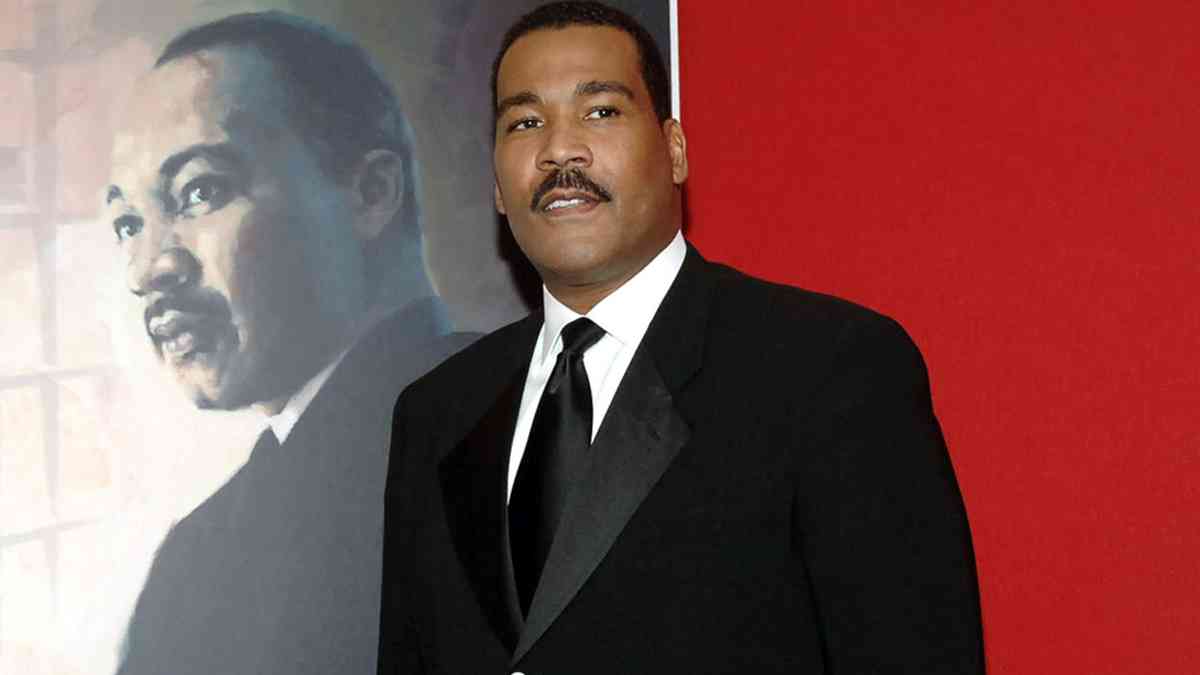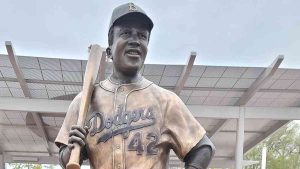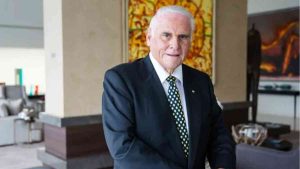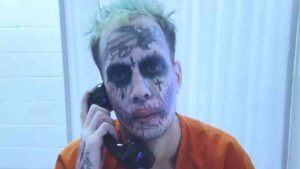Dexter Scott King, the younger son of the long-lasting civil rights chief Rev. Dr. Martin Luther King Jr., died away at the age of sixty-two at his home in Malibu, California. His life was marked by a deep connection to his father’s legacy, but additionally via severe controversies and conflicts within his own family and the civil rights community.
Dexter King changed at just 7 years old when his father, Martin Luther King Jr., was tragically assassinated in Memphis in 1968. Alongside his older brother, Martin Luther King III, Dexter witnessed the shocking news of his father’s death on television. This worrying event might form the course of his lifestyle.
In 1968, Dexter’s mother, Coretta Scott King, set up the King Center for Nonviolent Social Change in Atlanta with the intention of advancing her husband’s imagination and prescient for a simpler and more equitable society. For years, Coretta served as the president, chief executive, and chairwoman of the middle. However, in 1989, she passed the reins to Dexter, leading to their first clash over management.
Turbulent Times on the King Center
Dexter’s tenure at the pinnacle of the King Center was marked by frequent battles, now not most effective along with his mom; however, additionally, together with his siblings, mainly his brother Martin Luther King III and more youthful sister Bernice King. The struggle to manipulate their father’s legacy brought about lawsuits, public disputes, and a strained circle of relatives relationships.
Apart from his role at the King Center, Dexter changed into the president of the King Estate, responsible for managing the licensing of his father’s picture and likeness. This function placed him within the centre of a complex net of alliances and conflicts.
Dexter King’s approach to defensive his father’s legacy often raised eyebrows. In the late 1990s, he led a lawsuit towards CBS News for using taped excerpts from Dr. King’s well-known 1963 “I Have a Dream” speech on the Lincoln Memorial. The lawsuit led to a settlement, but a few considered it overly income-driven.
In 1995, a confrontation with the National Park Service over plans for a welcome centre adjoining the King Center led to the closure of each the middle and the King Crypt to the public. Dexter desired a multimedia theme park, which critics derided as “I Have a Dreamland.” Eventually, a compromise was reached, and the centre reopened.
In an exceedingly debatable move, Dexter King met with James Earl Ray in 1997. Ray had confessed to killing Dr. King but later recanted, claiming he become a fall guy in a larger conspiracy. Dexter came far from the meeting, believing in a conspiracy that implicated President Lyndon B. Johnson. This assembly stirred massive controversy and complaints.
Family Feuds and Legal Battles
The conflicts in the King family have been now not limited to the public arena. In 2015, Dexter and Martin sued Bernice over control of their father’s Bible and Nobel Peace Prize. These disputes took years to remedy and regularly overshadowed their father’s legacy.
The Impact of Tragedy
Dexter King recounted that the trauma of his father’s homicide had a profound impact on him and his siblings. They have become cautious and reserved in their interactions with the outdoor international, creating barriers in their non-public relationships.
Dexter Scott King, born on January 30, 1961, in Atlanta, was accompanied in the footsteps of his father by means of attending Morehouse College. However, he chose not to pursue a profession in civil rights leadership like his brother Martin III or become a preacher like his father and sister Bernice.
Legacy and Departure
Dexter King moved to California in 2000 and stepped down as the president and chief govt of the King Center in 2003. In California, he ventured into the film industry as a producer and creative adviser. He even portrayed his father in the TV film “The Rosa Parks Story” in 2002.
The life of Dexter Scott King was marked by a deep connection to the legacy of his father, Martin Luther King Jr. However, it also changed into full of controversies, criminal battles, and conflicts within his own family. While some viewed him as driven by income and controversy, others saw a complex character formed by way of the profound tragedy of his father’s assassination.
Dexter Scott King’s journey reminds us that even within the most revered households, human complexities and conflicts exist. His legacy, like his father’s, is multifaceted, and his tale serves as a reminder of the demanding situations faced in maintaining and managing an ancient legacy.
In Dexter Scott King’s personal words, “I’m no longer seeking to have a constituency. I’m not seeking to be preachy or be on a pedestal. I’m not looking to impact change on that degree, not as it’s now not something that should be done, but that’s simply now not my high-quality future.”






















+ There are no comments
Add yours